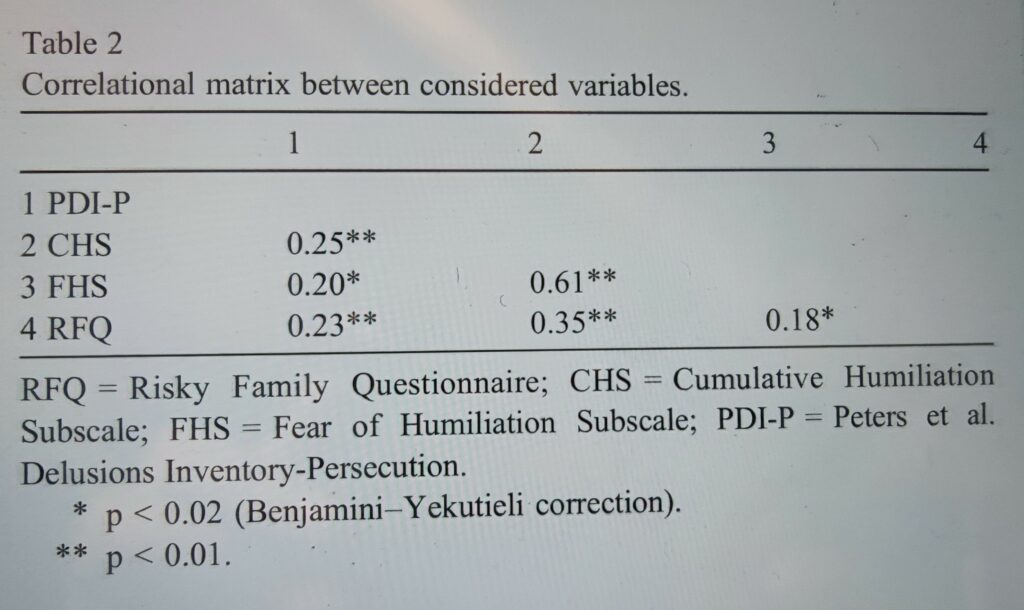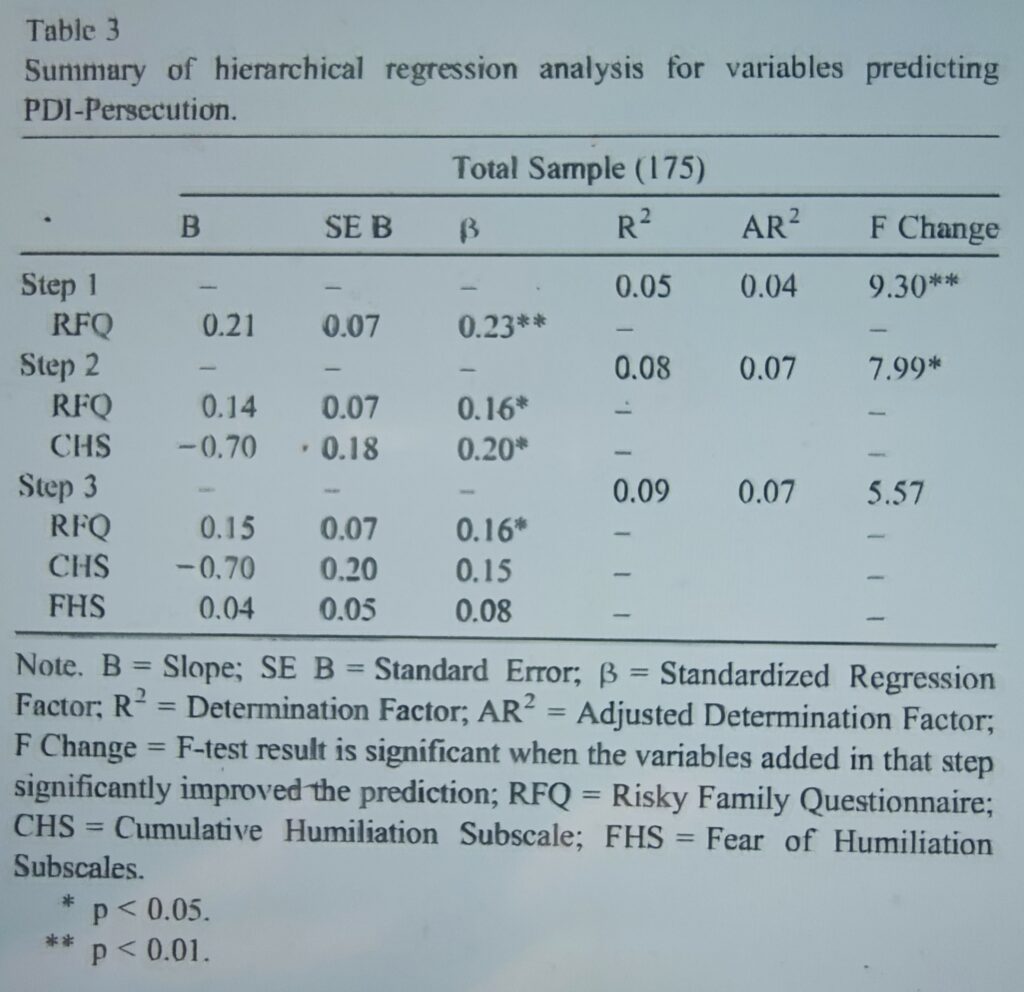Correlational analyses (Table 2) demonstrated significant and positive correlations between the PDI-P and the RFQ, the CHS, and the FHS. The RFQ was found to be significantly and positively correlated with the CHS and the FHS. Finally, the CHS was significantly and positively correlated with the FHS. The results of the hierarchical multiple regression analysis are reported in Table 3. First, step 1 revealed that the RFQ was a significant predictor of persecutory ideation proneness (β = 0.23), explaining 5% of the PDI-P variance. Step 2 revealed that the RFQ and CHS together explained 8% of the persecutory ideation proneness variance. In particular, the CHS explained 3% of the PDI-P (β = 0.20). Step 3 revealed that the FHS was not a significant predictor of PDI-P (β = 0.08).
Les analyses corrélatives (tableau 2) ont démontré des corrélations significatives et positives entre le PDI-P et le RFQ, le CHS et le FHS. La RFQ est significativement et positivement corrélée avec la CHS et la FHS. Enfin, le CHS est significativement et positivement corrélé avec le FHS. Les résultats de l’analyse hiérarchique de régression multiple sont présentés dans le tableau 3. Tout d’abord, l’étape 1 a révélé que le RFQ était un prédicteur significatif de la propension aux idées persécutrices (β = 0,23), expliquant 5 % de la variance du PDI-P. L’étape 2 a révélé que la RFQ et le CHS expliquaient ensemble 8 % de la variance de la propension aux idées persécutrices. En particulier, le CHS a expliqué 3 % de la variance du PDI-P (β = 0,20). L’étape 3 a révélé que le FHS n’était pas un prédicteur significatif de la PDI-P (β = 0,08).
Alberto Collazzoni, Julien Laloyaux, Frank Larøi, “Examination of humiliation and past maladaptive family context in persecutory ideation: An exploratory study” in Comprehensive Psychiatry – Volume 78, 2017, Pages 19-24,
ISSN 0010-440X,
https://doi.org/10.1016/j.comppsych.2017.06.015.
https://www.sciencedirect.com/science/article/pii/S0010440X16306575
PDI-P : Peters et al. Delusions Inventory-Persecution
RFQ : Risky Family Questionnaire
CHS : Cumulative Humiliation Subscale
FHS : Fear of Humiliation Subscale

